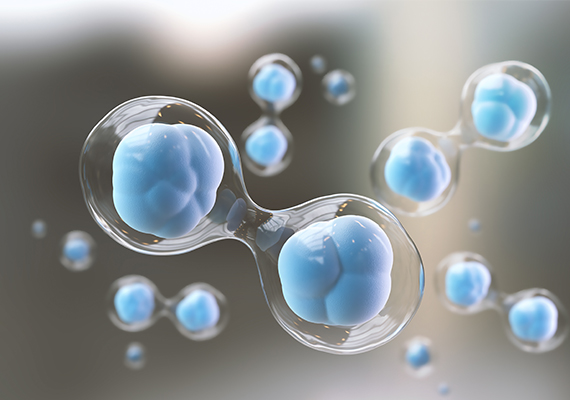|
|
|
A whole new study conducted by Swedish and Norwegian scientists shows that it is possible to keep the body’s cells alive longer when you take a combination of selenium and coenzyme Q10.
All cells in the body have an expiry date, but according to a new study which a team of Swedish and Norwegian scientists have published in the science journal, Nutrients, that date can be postponed.
In their study, the researchers looked at the length of so-called telomeres, an acknowledged and commonly used method for determining how long it will take before a cell perishes.
|
|
|
Longer telomeres with selenium and Q10
By giving a large group of healthy older men and women either daily supplements of selenium and coenzyme Q10 or matching placebo for a five-year period, the scientists could see a distinct difference between the two groups when comparing them afterwards.
The telomeres of the participants that got the two active preparations, SelenoPrecise and Bio-Quinone Q10, were longer than the telomeres in the group that got placebo. In other words, these two supplements had postponed the cells’ expiry date and that may have a significant impact on a person’s aging process.
|
|
|

Slower cellular attrition
Telomeres are protective caps at the end of our DNA strands. You can think of them as having the same function as the plastic snips that prevent shoelaces from fraying. Each time a cell divides, the telomeres are shortened. Sooner or later, when they are completely worn down, the DNA strand unravels and the cell dies.
It appears that the mineral selenium and the vitamin-like compound coenzyme Q10 are able to protect the telomeres and slow down the attrition that wears them down.
|
|
|
Oxidative stress and inflammation
“We humans are exposed to accelerated ageing, where oxidative stress and increased inflammation speed up the process, especially if we have low levels of selenium and Q10. If people who are low in these two compounds increase their intake through supplementation it can slow down their ageing process,” says the study’s lead researcher, Professor Urban Alehagen, who is a cardiologist at the University Hospital of Linköping in Sweden.
The current study was conducted by analyzing blood samples that the researchers had collected at regular intervals from the 443 study participants as part of the five-year KiSel-10 study. Ever since the study was published in 2013, more than 50,000 blood samples have been analyzed systematically by the scientists to help them find out how selenium and coenzyme Q10 affect the body at a cellular level.
|
|
|

Counteracts biological change
As a result of this thorough work, the scientists have managed to produce over 20 follow-up studies, in which they have looked at different biomarkers to see how selenium and coenzyme Q10 counteract biological changes that normally occur as a natural part of the aging process.
In the current study they focused on telomere length. Like in all the previous studies, the researchers have demonstrated that the combination of selenium and coenzyme Q10 helps older people preserve their health and quality of life.
|
|
|
Widespread selenium deficiency
“We have looked at numerous markers and can see that there is a relation between selenium intake and biological age,” Professor Alehagen says.
The average selenium intake in large parts of Europe is comparatively low because there is very little selenium in the agricultural soil compared with other parts of the world.
Studies show that we need more than 100 micrograms of selenium daily for optimal health, but the intake in our part of the world is less than half of that.
Click here to read more about the groundbreaking Kisel-10 study
|
|
|
|